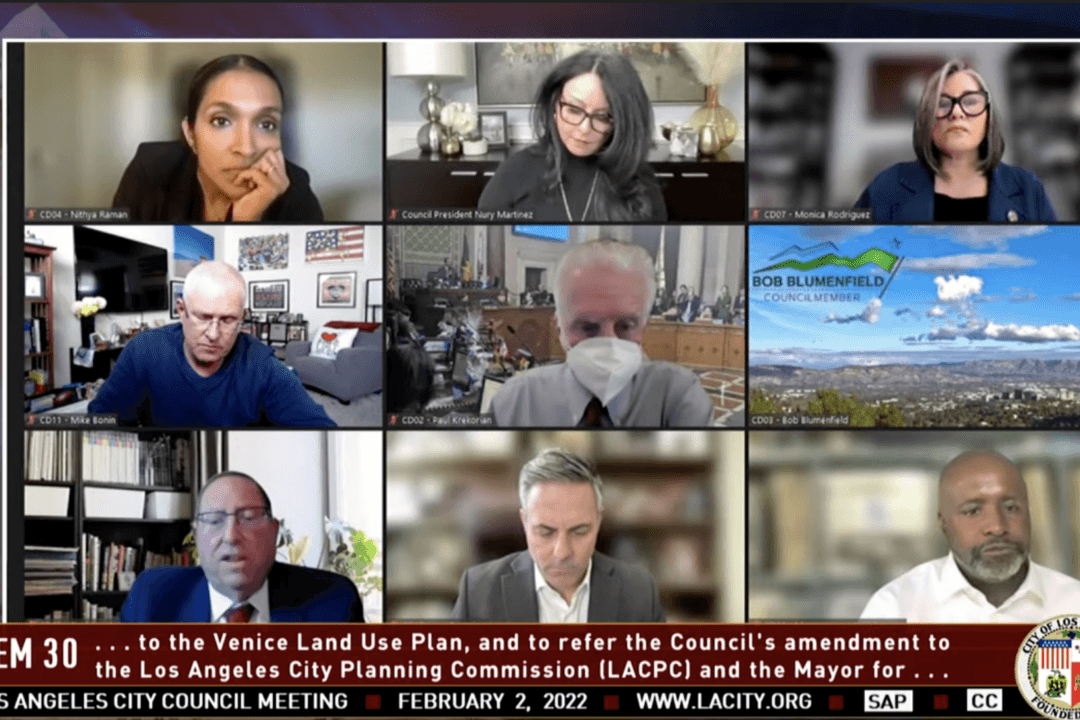Local governments would be permanently required to offer remote access in public meetings under a new bill introduced into the California Assembly.
Assembly Bill 1944, announced Feb. 9 by California Assemblymembers Alex Lee (D-San Jose) and Cristina Garcia (D-Bell Gardens), would change the current law that requires a majority vote to conduct remote meetings. The law would also waive a Brown Act requirement—which requires government affairs to be open to the public—that officials publicize their private addresses if they are teleconferencing remotely.





